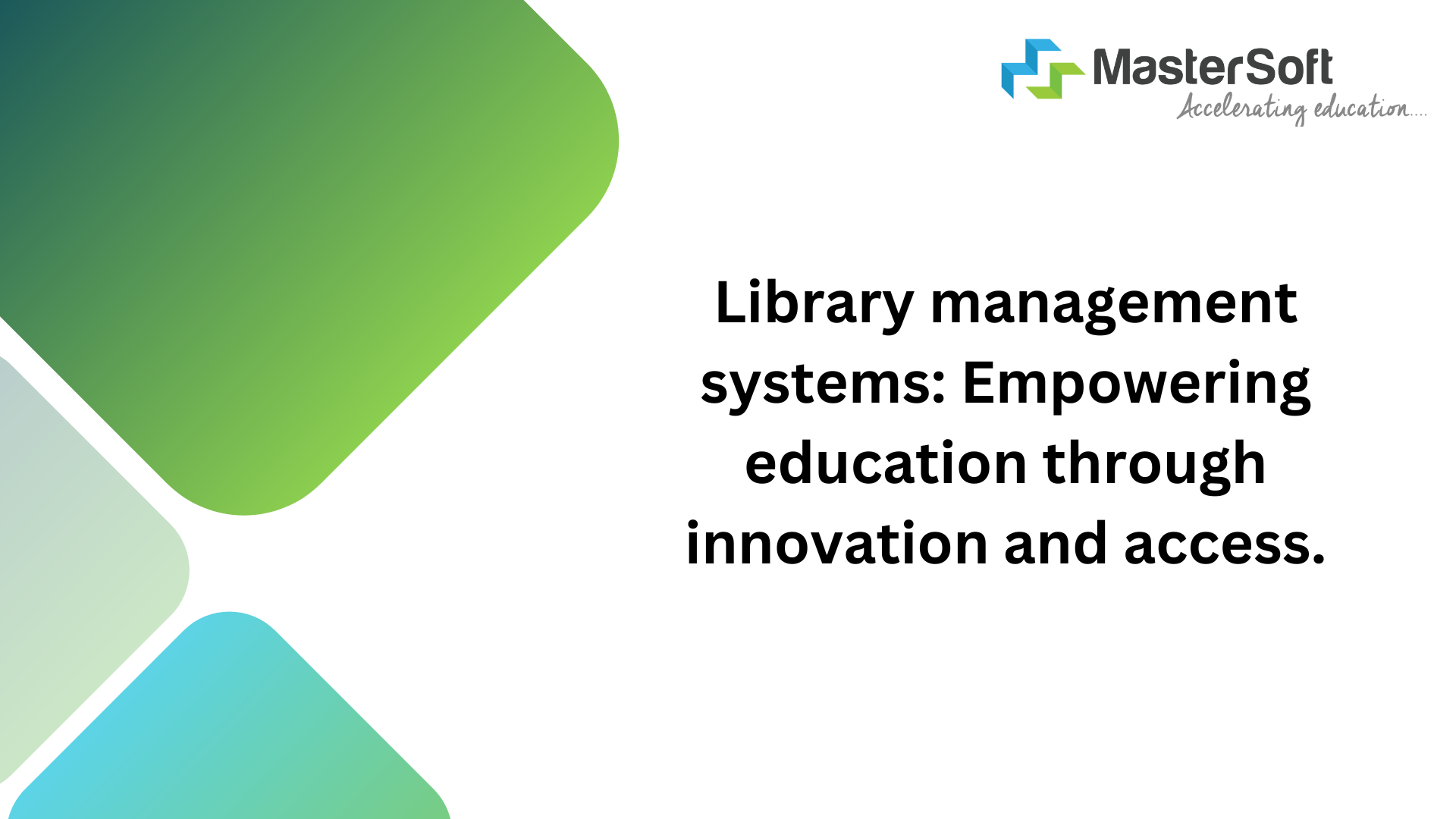In the digital age, education is undergoing a profound transformation. Driven by technological advancements that are reshaping the way students learn and educators teach. One such innovation that is revolutionizing the educational landscape is the Library Management System (LMS). From enhancing access to educational resources to facilitating collaborative learning. LMS is playing a pivotal role in shaping the future of education. Let’s explore ten revolutionary ways in which library management systems are transforming education.
Centralized Access to Resources
Library management systems serve as centralized platforms for accessing a wide array of educational resources, including books, journals, articles, and multimedia content. By digitizing and organizing these resources in a single location. LMS provides students and educators with seamless access to information, regardless of their location or time zone. This centralized access eliminates the need for physical libraries and empowers users to explore and discover new knowledge at their convenience.
Customized Learning Experience
One of the key advantages of library management system is their ability to personalize the learning experience for each user. Through features such as user profiles and recommendation algorithms. LMS can tailor content recommendations based on individual preferences, learning styles, and academic interests. This customization not only enhances engagement but also helps students discover relevant resources that align with their learning objectives, ultimately leading to a more enriching educational experience.
Collaborative Learning Opportunities
Library management systems facilitate collaborative learning by enabling students and educators to share resources, collaborate on projects, and engage in discussions within a digital learning community. Through features such as forums, group study rooms, and collaborative document editing tools. LMS fosters collaboration and knowledge sharing among users, promoting peer-to-peer learning and collaborative problem-solving skills.
Streamlined Resource Management
Managing educational resources can be a daunting task for institutions, particularly in large academic settings. Library management systems streamline resource management by automating cataloging, circulation, and inventory processes. With features such as barcode scanning and RFID technology. LMS simplifies resource tracking and ensures that materials are readily available when needed, saving time and resources for educators and administrators.
Real-Time Analytics and Insights
Data-driven decision-making is becoming increasingly important in education, and library management systems provide valuable insights through real-time analytics and reporting capabilities. By tracking usage patterns, resource popularity, and user engagement metrics. LMS enables educators and administrators to make informed decisions about resource allocation, curriculum development, and instructional strategies. This data-driven approach helps optimize educational outcomes and enhance student success.
Remote Access and Mobile Learning
In today’s digital era, learning extends beyond the confines of the classroom, and library management systems facilitate remote access to educational resources through web-based interfaces and mobile applications. Whether students are studying from home, commuting to school, or traveling abroad. LMS ensures that they can access course materials, research databases, and online journals anytime, anywhere, using their preferred devices. This flexibility empowers students to take control of their learning journey and promotes lifelong learning habits.
Integration with Learning Management Systems
Library management systems seamlessly integrate with learning management systems (LMS). Creating a unified educational ecosystem that combines course materials, library resources, and instructional tools into a single platform. By integrating LMS with popular learning management platforms such as Moodle, Canvas, and Blackboard, educators can enrich their courses with multimedia content, interactive quizzes, and collaborative assignments, enhancing the overall learning experience for students.
Promoting Information Literacy Skills
In an age of information overload, cultivating information literacy skills is essential for students to navigate and evaluate the vast amount of information available to them. Library management systems play a crucial role in promoting information literacy by providing access to authoritative sources, teaching research skills, and fostering critical thinking abilities. Through interactive tutorials, online workshops, and librarian-led sessions. LMS equips students with the skills they need to find, evaluate, and use information effectively in their academic pursuits.
Enhancing Library Outreach and Engagement
Library management systems extend the reach of libraries beyond physical boundaries, enabling institutions to engage with users through virtual services and digital resources. By leveraging social media, email newsletters, and online events. Libraries can promote their collections, services, and programs to a wider audience, fostering community engagement and collaboration. Additionally, LMS provides tools for tracking user interactions and gathering feedback, allowing libraries to continuously improve their services based on user needs and preferences.
Supporting Open Access and OER Initiatives
Library management systems play a crucial role in supporting open access and open educational resource (OER) initiatives by providing platforms for hosting, organizing, and disseminating digital content. By curating open access repositories and OER collections. LMS helps institutions reduce the cost of course materials, expand access to educational resources, and promote collaboration among educators and researchers. This commitment to open access aligns with the principles of equity, inclusivity, and accessibility in education, ensuring that all students have equal opportunities to succeed.
Facilitating Remote Library Services
Library management systems have become indispensable tools for providing remote library services, especially in times of global crises or when physical access to libraries is limited. Through virtual reference services, digital document delivery, and online research assistance. LMS ensures that users can access library resources and support remotely. Additionally, features such as online reservations and curbside pickup functionalities enable users to borrow materials safely and conveniently, even when they cannot visit the library in person. By embracing remote library services, institutions can continue to serve their communities effectively and uphold their commitment to providing equitable access to information and resources.
Supporting Digital Preservation Efforts
In an increasingly digital world, preserving and maintaining digital assets is paramount for ensuring long-term access to valuable scholarly resources and cultural heritage materials. Library management systems play a crucial role in supporting digital preservation. Efforts by providing robust infrastructure for storing, organizing, and managing digital collections. Through features such as metadata management, digital archiving, and format migration tools. LMS helps institutions safeguard digital assets from obsolescence, degradation, or loss. By investing in digital preservation initiatives, libraries can ensure that future generations have access to the rich cultural and intellectual heritage preserved in digital form.
Empowering Data-Driven Decision-Making
Library management systems are valuable sources of data that can inform strategic decision-making at the institutional level. By analyzing usage statistics, circulation trends, and user demographics. LMS provides insights into the evolving needs and preferences of library patrons. This data can be leveraged to optimize collection development strategies. Tailor library services to meet user expectations, and allocate resources more effectively. Additionally, LMS can help libraries identify areas for improvement. Measure the impact of initiatives, and demonstrate the value of library services to stakeholders. By harnessing the power of data, institutions can make informed decisions that enhance the overall effectiveness and relevance of library services in the digital age.
In conclusion,
library management systems are revolutionizing education by providing centralized access to resources, personalizing the learning experience. Fostering collaboration, streamlining resource management, and empowering educators and learners with real-time analytics and insights. By harnessing the power of technology, LMS is transforming the way we teach, learn, and engage with information, paving the way for a more inclusive, accessible, and effective educational experience for all.
Read More Blog Here



